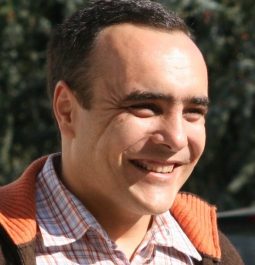Presentation
The Faculty of Social Sciences and Humanities at NOVA University of Lisbon (NOVA FCSH) is proud to have been the first Portuguese Faculty to create Masters courses in the area of History, more than thirty years ago. The courses, which have run uninterruptedly since then, bear witness to a path focused on learning and research and which continues to be a landmark on the university landscape in our country.
The Master’s programme in History at NOVA FCSH offers a wide range of choices for those interested in attending it, combining rigour and a critical spirit with the capacity for innovation. Currently there are five areas of specialization on offer (Egyptology, Middle Eastern and Ancient Asian Civilizations, Medieval History, Modern History and the Discoveries, Contemporary History).
The Syllabus ensures the necessary depth required for this level of training (subjects of the specialization), while offering versatility and interdisciplinarity through the optional subjects.
The presentation and public defence of a dissertation or project is the culmination of a path essentially directed towards historical research.
Objectives
- To become aware of knowledge already acquired and gaps with regard to the 1st cycle and to promote the acquisition of new knowledge;
- To establish dialogue with teachers/supervisors when defining the programme for knowledge acquisition and the forthcoming research options;
- To enhance the ability to integrate programmes and environments of interpersonal cooperation in a specific research area;
- To acquire knowledge that enables understanding and management, on an international/global scale, of the process for the acquisition/production of in-depth knowledge in the chosen area of specialization;
- To develop and extend the knowledge acquired in the 1st cycle in the chosen specialization;
- To creatively apply the knowledge acquired and to raise questions, managing heuristic information capital and mastering the hermeneutics and disciplinary patrimony of the History of the respective specialization;
- To acquire the ability to understand and solve problems, including in new or unfamiliar areas, by mobilising the knowledge capital obtained and a spatio-temporal comparative perspective;
- To operationalise the knowledge acquired in multiple ways – knowledge integration, solving concrete problems, solution proposal, issuing of opinions in situations of limited or incomplete information;
Areas Of expertise
- Ancient Middle East
- Contemporary History
- Medieval History
- Modern History and the Discoveries
Curricular structure
Duration: 2 years / 4 semesters Total Credits: 120 ECTS (60 in curricular units + 60 in the non-taught component)
Modalities of non-taught component: Dissertation, Project Work or Practical Work Experience with Report
Students complete 50 credits in all the taught units offered. Students also complete 10 credits in a free-choice regime (in post-graduate level curricular units of NOVA FCSH, of NOVA or of other national or foreign higher education institutions, by means of a protocol). In the 3rd semester, students must attend a seminar to accompany the non-taught component (5 ECTS).
The Master’s degree corresponds to Level 7 of the NQF and EQF - National Qualifications Framework/European Qualifications Framework.

